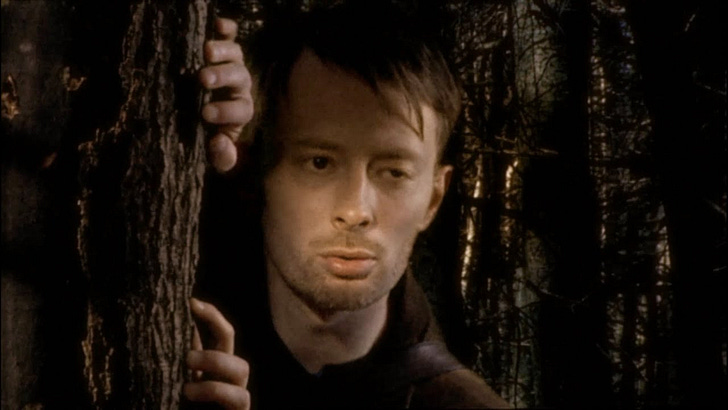Radiohead's Dire Vision of Humanity: "Where I End and You Begin" and "There, There."
One of the many things that makes the great British band Radiohead so great is the fact that you can dance to them. Listen to “There, There,” for instance, or “Where I End and You Begin” and it’s difficult not to shake your booty to their specific brand of despairing existential angst. Both tracks appear on Hail to the Thief, which when it was released in 2003, seemed perhaps a mishmash of paranoia. Now it seems like a prophetic masterpiece warning us about the neo-fascism that would emerge in 2016 and beyond. Its apocalyptic qualities reverberate effectively in 2024. All you have to do is look at the titles to see how reflective it is of the third decade of this century: “2+2=5” (fake news, etc.) and “Sit Down, Stand Up,” for instance (our twisted love affair with cults of personality). The direness of the message seemed perhaps overly stark at the time and now it seems perhaps not stark enough. Radiohead is one of the great musical acts of all time in its ability to time and time again produce songs that mine the depths of human nature from the severest of angles.
This post is a bit of a cheat in that I’m tackling two songs, but they are inseparable sides of the same coin–companion pieces, in many respects. The propulsive drum-heavy track “There, There,” with its calming, maternal title, conveys a sense of moral guidance for a godless world lacking an instruction manual (“I go walking in your landscape”--created by someone, something but left bereft of clear warning signs. In many ways the lyrics take us on a journey. We are presented with incredible dangers (e.g. shipwrecks) and yet we are “accidents waiting to happen,” as the song concludes. All it takes is one misstep and we are done for.
The narrator offers kind guidance, especially focusing on the content of the refrain: “just ‘cause you feel it doesn’t mean it’s there.” This line takes some unpacking. In many ways it offers a version of classic skepticism: we should doubt any and all offerings of kindness since there is no assurance the motives of the other are pure. This line takes me back to 70’s songs such as “Smiling Faces” by the Temptations and later the Undisputed Truth. We are told to be wary about those sirens luring us to fool’s gold (the shipwreck). If you feel something positive emotionally, check yourself. Is it legitimate? Our ethical spam detectors need to be constantly engaged.
Where “There, There” offers ethical guidance “Where I End and You Begin” goes directly to the root of the issue, which is, as Nietzsche postulated “God is dead.” Told from God’s perspective the track portrays an initially fairly powerless God able only to witness what they have created. “I can’t come down/I can watch but not take part.” But the key lines of the song are: “Where you, you left me alone.” And the song slashes and rages into a froth from this point forward. This God is pissed. They have been abandoned, the faith they require has dissipated. “X will mark the place.” God is bringing a holy hammer down without mercy. “I will eat you alive, there will be no more lies.” This song is a unique creation–God’s revenge plans coming to light. Humanity, so morally culpable and weak in “There, There,” are portrayed as disconnected and ungrateful. This is some serious Old Testament shiznit.
Back to the title for a minute. “There’s a gap between where I end and you begin” suggests to me a failing of circuitry. Is God disappointed most of all in their own creation? Here we are flawed, duplicitous humans–why can’t our species bridge the gap? “Where I End and You Begin” implies that perhaps the invisibility (to us) of the gap is our greatest misstep. Perhaps we want to be good, to make the right decisions but we have a blind spot–and the blind spot is a kind of forgetfulness, an innate inability to look at the big picture. In any case, this is not going to end well for us, the track indicates. It’s just a matter of time.


